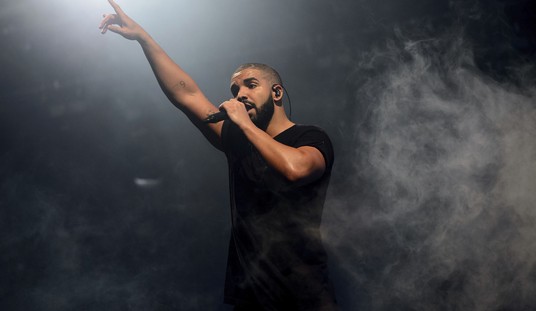There’s been much attention paid lately to Democrats cutting ads for Republicans, but I never expected the president to get in on the action.
We just passed the first anniversary of Biden predicting that inflation would be temporary, an episode which one would think might caution him against sanguine economic forecasts that are likely to come back to haunt him.
But one would be wrong.
Biden says he doesn't expect the US to go into a recession https://t.co/YWxsZlQkFi pic.twitter.com/eNhl7EeC4a
— Bloomberg TV (@BloombergTV) July 25, 2022
I hate to be the bearer of bad tidings when Biden’s economic brain trust is busy working hard to convince the public that we might not be in a recession. But if we’re not in a recession right now, we assuredly will be soon.
Question: Out of the past 10 times the U.S. economy has experienced two consecutive quarters of negative economic growth, how many times was a recession officially declared?
Answer: 10. pic.twitter.com/yrR1kwlC4r
— Michael R. Strain (@MichaelRStrain) July 25, 2022
Looking at it from Biden’s perspective, how is he supposed to answer questions about this other than the way he did? If he gives any indication that he thinks the economy is tanking, he may inadvertently talk it into tanking more steeply than it otherwise might. Americans expect a certain amount of unrealistic happy-talk BS about their country’s economic outlook! If top politicians start leveling with them about hard times ahead, voters will think, “Holy cripes, the truth must be worse than I thought.”
His press secretary was asked to define “recession” this afternoon and politely punted, reminding reporters that that’s the NBER’s job, not the White House’s:
"What is exactly the White House's definition of a recession?"
KARINE JEAN-PIERRE: "I'm not going to define it from here" pic.twitter.com/GNteaetb0V
— RNC Research (@RNCResearch) July 25, 2022
Funny thing, though: Righty media found numerous examples of reporters and Biden advisors having no difficulty defining the term before Joe became president. Here’s Jared Bernstein, who was on TV yesterday insisting that “recession” is a complicated subject, in better times.
In 2019, now-Biden economic advisor Jared Bernstein defined a recession as GDP “crossing zero.”
In the first quarter of 2022, GDP was -1.6%. pic.twitter.com/ngZsN7H0gM
— RNC Research (@RNCResearch) July 25, 2022
And here are … a lot of other people using term according to its universally understood rule of thumb.
Feels like we were all pretty clear on what recessions were before the Biden admin started trying to redefine them. Remember back in 2019 when CNN's John Harwood said even one really bad quarter of GDP contraction was enough to count?pic.twitter.com/mLfJ9RF4Of
— Bill D'Agostino (@Banned_Bill) July 25, 2022
The effort to redefine “recession” so that it encompasses some gassy, impossible-to-know-except-in-hindsight concept seems like an especially unfortunate example of the Democrats’ focus on “messaging” as their fundamental political failing. If only the White House has Janet Yellen explain things correctly on “Meet the Press,” the public’s economic outlook before the midterms might remain … okay-ish? Okay-ish enough to produce a 30-seat GOP pick-up instead of a 60-seat pick-up, maybe?
It’s fantasy. In fact, although professional commentators may know the thumbnail definition of a recession — two straight quarters of negative GDP — I doubt the average voter conceives of it any more precisely than “a long stretch of really bad economic vibes.” By that standard we’re already knee-deep in one, never mind that inflation is a symptom of a hot economy rather than a cold one. Americans know the temperature is uncomfortable and they want it to change.
In which case, maybe Wednesday’s coming news about the R-word once the new GDP numbers drop will do less damage to Biden’s and the Democrats’ political standing than we think. The bad vibes are already priced into their polling. Knowing that the economy is contracting will simply confirm the public’s shared sentiment that the state of the country is FUBAR.
Then again, what if it turns out they’ve been underestimating how FUBAR things might yet become?
The Federal Reserve will probably have to inflict much more pain on the economy to get inflation under control…
[W]ith inflation proving persistent at a four-decade high, a growing number of analysts say it will take a recession — and markedly higher joblessness — to ease price pressures significantly. A Bloomberg survey of economists this month put the probability of a downturn over the next 12 months at 47.5%, up from 30% in June…
After raising rates in June by the most since 1994, Fed Chairman Jerome Powell and his colleagues are expected to approve another 75 basis-point hike this week and signal their intention to keep moving higher in the months ahead. Powell has said that failing to restore price stability would be a “bigger mistake” than pushing the US into a recession.
It’s going to get worse before it gets better. Maybe much worse. Exit quotation from William Cohan: “With the annual inflation rate now close to double digits, what will it take for real interest rates—the interest rate that investors need to overcome the effects of inflation—to be positive? Wouldn’t that require the yield on the two-year Treasury to be closer to 10 percent than the 3 percent yield it has now? That’s a 700-basis point increase. How many Fed rate hikes will it take before we get anywhere near there and what will the consequences of that be? You want a recession? That will get you a recession.”








Join the conversation as a VIP Member